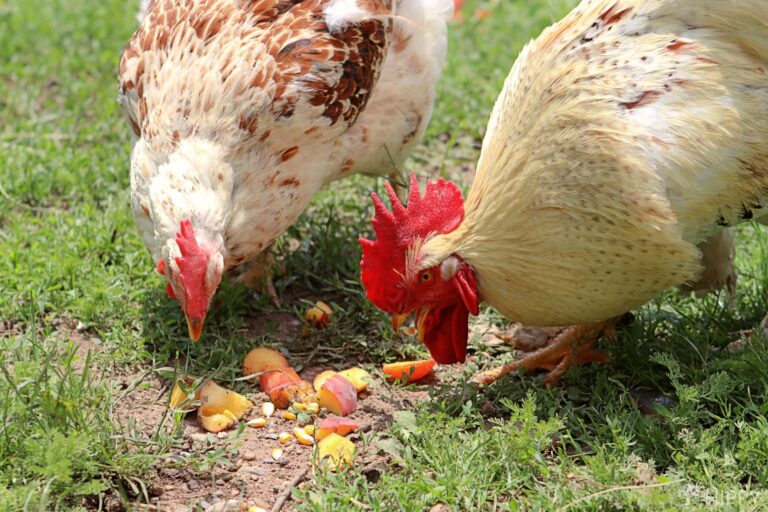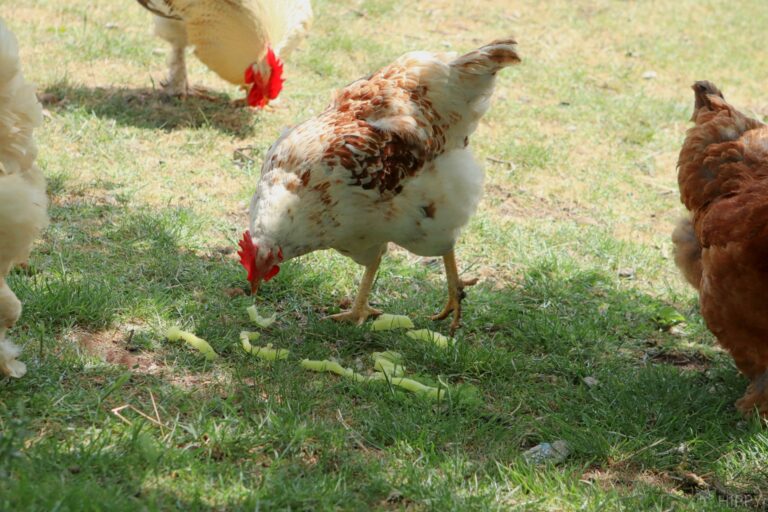Sunlight and Chickens: What You Need to Know


Everybody knows that chickens are up with the sun, and they go to sleep with the sun. Love it or hate it, you can always count on a rooster crowing at the first peep of dawn’s light. Is it because they are so industrious? Not exactly!
You can set your watch to chickens because they have set theirs to the sun. This is because the health and well-being of chickens are closely linked with their getting enough light. If they get plenty of sunlight every day, they’ll be happy and healthy. If they don’t, just the opposite will happen.
Letting your chickens roam outside or in the run is usually sufficient for their sunlight needs, but not always. Keep reading, and I’ll tell you what you need to know concerning how much sunlight your birds need and at what times.
The very first thing you need to know about your birds’ sunlight requirements is that they need anywhere from 12 to 16 hours of it every single day. That’s quite a lot when you think about it!
Chickens need this much sunlight because their body clock is set to living their lives in the relative safety of the daytime and getting some shut-eye at night, but also because they need vitamin D just like we do. And they get much of their vitamin D from sunlight exposure.
Anytime that chickens get less than 12 hours of light a day they might start suffering from a deficiency in vitamin D, and often their mental well-being will suffer also. That said, too much light is also bad.
Depending on the birds and the circumstances, getting more than 16 hours of light every day can cause irritability, infighting, and self-destructive behaviors like feather plucking.
Chickens need light, yes, but they also need a period of total darkness in which to sleep and recuperate. We will talk more about getting them the light they need and balancing those light requirements against other factors in what follows…
For any chicken keepers that are collecting eggs from their hard-working hens, if you want your girls to stay as productive as possible, they need tons of sunlight.
Science and long experience have shown us that consistent, healthy egg production means hens need right at 16 hours of sunlight daily and they also need 8 hours of total darkness to rest and recuperate.
They can make do with slightly less sunlight, 15 or maybe even 14 hours daily as long as they have a great diet, but any less than that and egg production is going to slow down or even stop.
And to be perfectly clear, this is independent of the weather: I’ve talked to plenty of keepers who think egg production slows down because it starts to get cold, meaning when the days get shorter, but these two factors aren’t directly correlated.
In fact, chickens living in temperate and hot areas actually produce fewer eggs once there is less daylight, but chickens living in cold conditions that still get enough light will produce as normal!
Sunlight is critical for laying hens because of its impact on their pineal glands. The pineal gland is an important organ in the endocrine system of chickens and is directly responsible for a hen’s egg-laying instincts since it produces the corresponding hormones.
The avian pineal gland is located directly behind the eyes and is stimulated by sunlight; accordingly, a lack of sunlight means less stimulation and far less production of the hormones that stimulate hens to keep cranking out eggs.
If eggs are your business or just a big reason why you own chickens in the first place, make sure your girls get plenty of sunshine every day!
Sunlight is critically important for laying hens, but it’s also just as important for the overall health of all chickens, young and old.
That’s because sunlight stimulates the production and synthesis of vitamin D in the body, and chickens get it in two ways directly from exposure to sunlight.
The first is that they absorb it through their eyes. The second is in the application of preen oil. Chickens, like ducks, have a preen gland near the base of their tail that secretes oil used to keep their feathers in good shape and mostly waterproof. Chickens pinch this gland with their beak, then rub and apply the oil on their feathers during their usual grooming routine.
If your birds have been getting plenty of sunlight, this oil will be rich in vitamin D which will then be absorbed directly through the skin of the chicken.
So when they don’t get enough sunlight, and lack enough dietary vitamin D to make up the difference, their health will start to suffer.
A lack of vitamin D has been associated with brittle bones in chickens of all ages, improper development in chicks, wry neck, joint problems, osteoporosis, slow healing, soft nails and beaks, and low egg production in hens, along with thin or absent egg shells.
A severe lack of vitamin D can be fatal or cause fatal complications: a broken bone can kill a chicken from stress or simply lead to you being forced to put down the poor bird. Likewise, a thin eggshell or absent eggshell can cause a hen to become egg bound which can rapidly result in death.

Before you head out cutting down trees and getting rid of everything on your property that can block the Sun from reaching your birds, take just a moment and hear me out: your chickens must still have shade – and plenty of it!
What you don’t want is for your chickens to get nothing but full, direct sunlight at all hours of the day. This can easily cause heat stress, overheating, and eventually heat stroke, especially if you live in a hot or arid environment.
Chickens must always have shade that they can retreat to to get relief from the intensity of the sun.
This could be shade offered by a nearby tree, retreating under the coop if you have a raised coop, or anything else. Just make sure there’s plenty of it so your chickens can still have personal space.
As long as ample shade is available, you can leave your chickens to decide when they want to venture out into full sun.
Chickens are highly dependent on the sun for their overall health as we’ve learned, but they also need shade. So where’s the best place to position their coop?
The answer is, “it depends.” It mostly depends on the climate where you live and the availability of shade where you would like to position the coop.
My rule of thumb is that I always position the coop so that it gets early morning sun, which will help the birds get up and get moving, but is shaded throughout the intense heat of the day.
This means it will stay a little bit cooler at night and help the chickens settle down quicker once they retire inside.
If you live in a cold climate, there’s no real harm in leaving the coop in full sun. That’s because your chickens will either be moving around outside regardless, or if you are forced to put them up, then they’ll benefit from having the coop warmed by the sun’s rays.
But you might not have that much flexibility in terms of where you are placing the coop. And if so, that’s okay.
As long as you allow your chickens to leave the coop when they need to and have free access to both sun and shade when they are outside, they’ll generally do fine.
If the coop is too hot going into the night, increasing ventilation or using a small fan to blow the hot air out might be all that is needed to keep it comfortable.
Don’t make the mistake of thinking your birds don’t need any sunlight in the wintertime. Many hens stop laying in the winter anyway, and shorter days along with some blisteringly cold temperatures mean that your birds might spend more time inside.
Even if you live in most places that have very short days, that still means your chickens should be getting at least 9 to 10 hours of light every day.
Assuming you can let them out, you should, but make sure they are able to deal with snow, slush, and wet conditions that can cause frostbite. Don’t be afraid to clear out snow or give them raised areas to stand on that will keep them from getting too wet.
As long as you can give them a comfortable place to go outside in the wintertime, you’ll likely see many of your chickens spending time sunbathing on clear days!
For folks that keep chickens inside pretty much all the time, extra lighting to make up for lost exposure to sunlight is critical.
This can be done in a variety of ways, but your best bet is usually going to be some type of daylight spectrum incandescent or fluorescent light. These specialized lights closely mimic actual daylight and will help egg production stay high and the rest of your birds stay healthy.
Obviously, you’ll need a coop or barn that’s wired for the purpose, and you should think twice before hooking up a common heat lamp: these things are a leading cause of structure fires on homesteads and farms!
One thing you’ll have to do if using supplemental artificial lighting is either get it on a timer or commit to manually turning it on and then turning it off to simulate a normal day-night cycle.
Under no circumstances should you leave lights on all night long! Chickens must have lengthy stretches of total or near-total darkness in order to rest comfortably. Keeping them in lit conditions 24/7 is only going to stress them out and cause other problems.
If you notice any of the symptoms in your birds we discussed above, you should allow your birds more time in the sun every day and see if things don’t improve.
If they don’t, consider vitamin D supplementation. Vitamin D can be given in the form of specialized supplements that are like treats, added to existing feed, or present in feed in fortified formulas. Check the label and ingredients on your brand to see how much vitamin D it contains.
Still, too much vitamin D can be just as bad, or even way worse, than not enough because it’s toxic in high doses. You’d be wise to consult with a poultry veterinarian for testing and guidance before beginning any dietary supplementation program.

Tim is a farm boy with vast experience on homesteads, and with survival and prepping. He lives a self-reliant lifestyle along with his aging mother in a quiet and very conservative little town in Ohio. He teaches folks about security, prepping and self-sufficiency not just through his witty writing, but also in person.
Find out more about Tim and the rest of the crew here.
